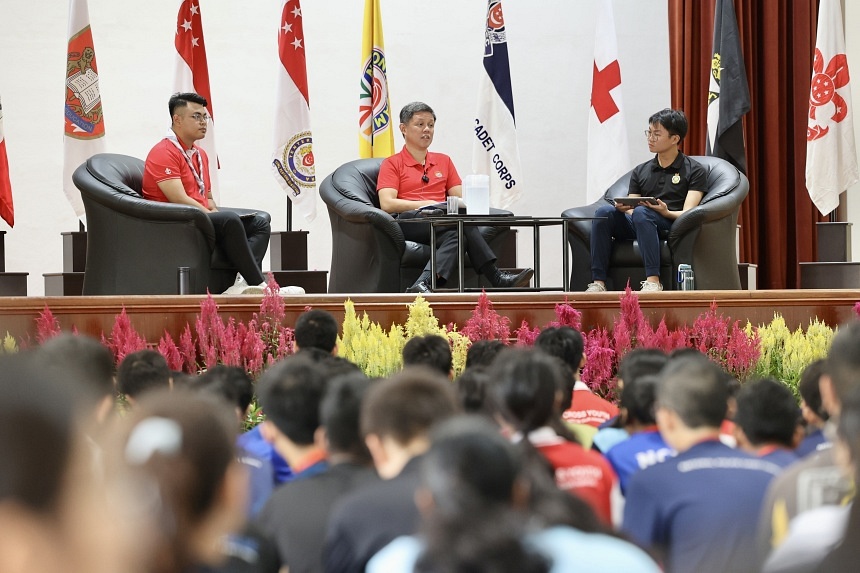SINGAPORE – Direct school admission (DSA) must be accessible to the broad swathe of students, and not just those from families with more resources, said Education Minister Chan Chun Sing.
Responding to a question on whether the Education Ministry (MOE) is thinking about reviewing DSA, Mr Chan said: “The answer must be yes. As Singaporeans, we constantly have to think of how to improve our system. Never believe that any system is perfect.”
Mr Chan made these remarks at a dialogue session with over 440 youth leaders from uniformed groups in Singapore, at the opening ceremony of the National Camp, at Maju Camp on Aug 22.
“Today, there are many people who can apply for DSA to go to schools, and many of them tend to come from families who are more well-resourced,” said Mr Chan.
He said that schools can do more to look out for students with potential, but who may not have the necessary resources.
“This will require us to help our teachers to spot those talented students, in those diverse fields, even though they may come from less privileged backgrounds.”
These comments come after allegations about a basketball coach taking money to secure pupils’ admission into secondary schools came to light in July.
It was reported then that the coach had allegedly helped these pupils to get into schools like Anglo-Chinese Junior College and Dunman High School for a fee of at least $45,000.
Introduced in 2004, DSA provides a pathway for Primary 6 pupils to gain early admission to the secondary school of their choice, using non-academic talents, such as in sports and the arts, before sitting the Primary School Leaving Examination.
As DSA is deemed as being highly competitive, critics have argued that the scheme benefits children from wealthier households who can afford private coaching and preparatory classes.
According to the MOE in 2023, schools offering the Integrated Programme (IP) take in about 30 per cent to 35 per cent of their Secondary 1 IP intake through DSA, while non-IP schools can admit up to 20 per cent of their Secondary 1 students via DSA.
Mr Chan said that aptitude based-assessments such as DSA are important to understand the strengths and talents of students, unlike standardised tests, which focus on general abilities and have limitations.
“They (standardised tests) tend to be uni-dimensional. They tend to not give sufficient emphasis to the multitude of talent that people can have.”
While non-standardised tests are broader, and seek to assess different aspects of talent, they can be subjective, said Mr Chan, unlike standardised tests where “everybody goes by a simple, easy-to-measure matrix”.
He said it is also easier to measure performance than to assess potential in non-standardised tests, adding that DSA categories like art, music, leadership and community require some judgment from assessors as they are “not so easy” to assess as well.

